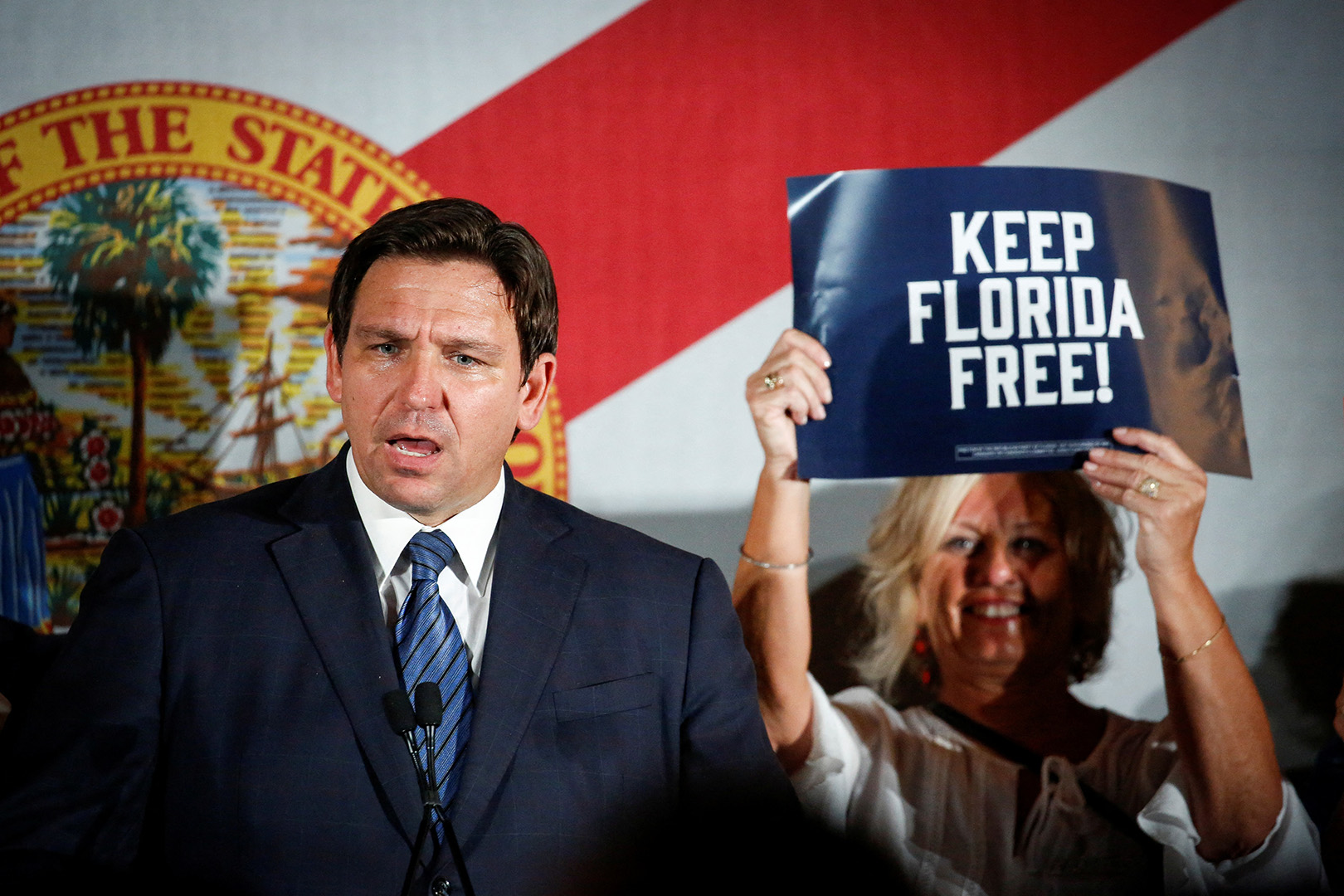
The 2022 U.S. midterm elections are less than two months away, and several 2020 election deniers will be on ballots across the nation.
A new report from the States United Democracy Center shows election deniers are running for a range of positions, including Congress, governors, attorneys general and secretaries of state.
Bloomberg News has identified 254 Republicans who have either said the 2020 election was stolen or doubt its legitimacy.
They are running in dozens of states, including key battleground states.
In 18 of the 36 gubernatorial races this year, there is an election denier on the ballot.
For attorneys general, 10 out of 30 races has an election denier. And nearly half of 27 races for secretaries of state has an election denier on the ticket, according to States United.
Experts are concerned over how the 2022 midterm elections will play out and the impact their results could have on the 2024 general election.
Governors and secretaries of state have a significant role in determining winners and losers in many states.
In 2020, President Joe Biden narrowly won Michigan, Arizona and Pennsylvania, three battleground states experts continue to monitor for this year's election.
Election deniers are running in all three of these states.
In Michigan, Tudor Dixon is running for governor and Kristina Karamo is running for secretary of state.
Dixon has repeatedly tweeted the 2020 election was stolen and accused Democrats of voter fraud, the Detroit Free Press reports.
Karamo made debunked claims she witnessed election misconduct, says Donald Trump won the state and left-wing activists were behind the Capitol insurrection, the Bridge Michigan reports.
In Arizona, Kari Lake is running for governor and Mark Finchem is running for secretary of state.
Lake claims Democrats stole the 2020 election and says had she been governor at the time, she wouldn't have certified Arizona, according to her Twitter.
Finchem held an unofficial hearing on the 2020 election as a state lawmaker, called for decertifying Biden's win in Arizona, and marched outside the Capitol on Jan. 6.
In Pennsylvania, Doug Mastriano is a nominee for governor. Mastriano privately lobbied the Justice Department to investigate election fraud, attended Trump's January 6 rally, and led a partisan review of the results.
Other state-level positions can also influence the election. Attorneys general can sue to stop vote counting and members of Congress can refuse to certify electors.
Some of these tactics were used in attempts to overturn the 2020 election.
"The stakes are really high in terms of what's on the line in 2024, with the worst-case scenario [being] that we see an election [result] that doesn't represent the will of American voters, which is particularly a concern when we have close election results," States United Action CEO Joanna Lydgate told NBC News.
Many of the election deniers on 2022 ballots are running on platforms to limit mail in voting, ballot boxes and implement other restrictions.
Some of their ideas are considered more extreme, such as ending early voting or in Mastriano's case, requiring voters to re-register if he's elected governor, according to Politifact.
While an election denier could limit current voting traditions, former Kentucky Secretary of State Trey Grayson, says individual officials are not all-powerful.
Many voting rights are established in state law and can't be changed unilaterally by one politician.
For example, refusals to certify the election would face legal challenges, similar to those in 2020, and federal law would prohibit wiping voter registrations.
But officials could still delay certifying results or remove their state from a database known as the Electronic Registration Information Center. This database allows states to share data on voters who have moved or died.
Bloomberg points out, while some candidates are using election denial to attract more voters, others are choosing to be less vocal.
Polling indicates election denial could turn away most voters, and some Democrats are capitalizing on the platforms of their Republican challengers.
For more, check out our exclusive content on CGTN Now and subscribe to our weekly newsletter, The China Report.

